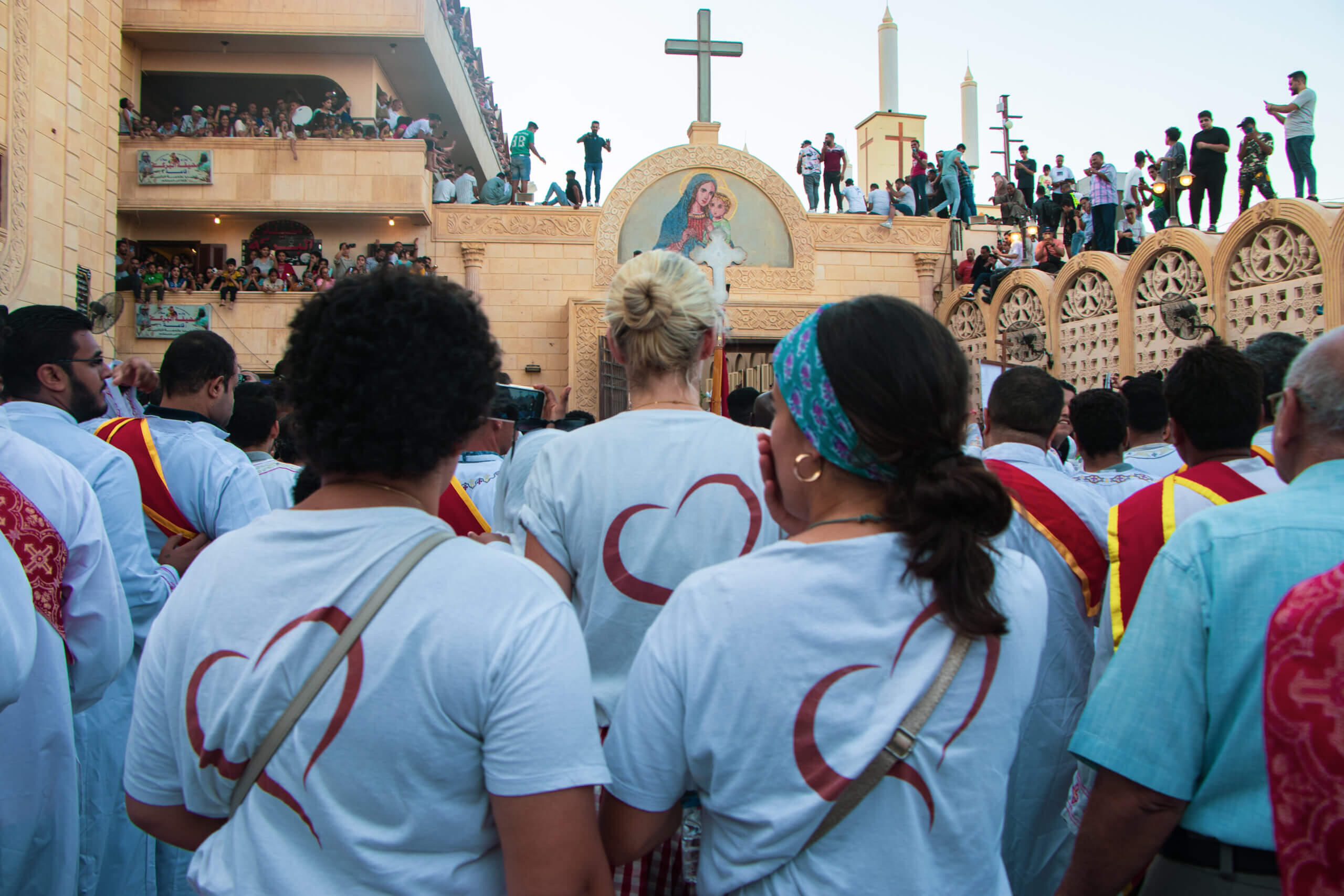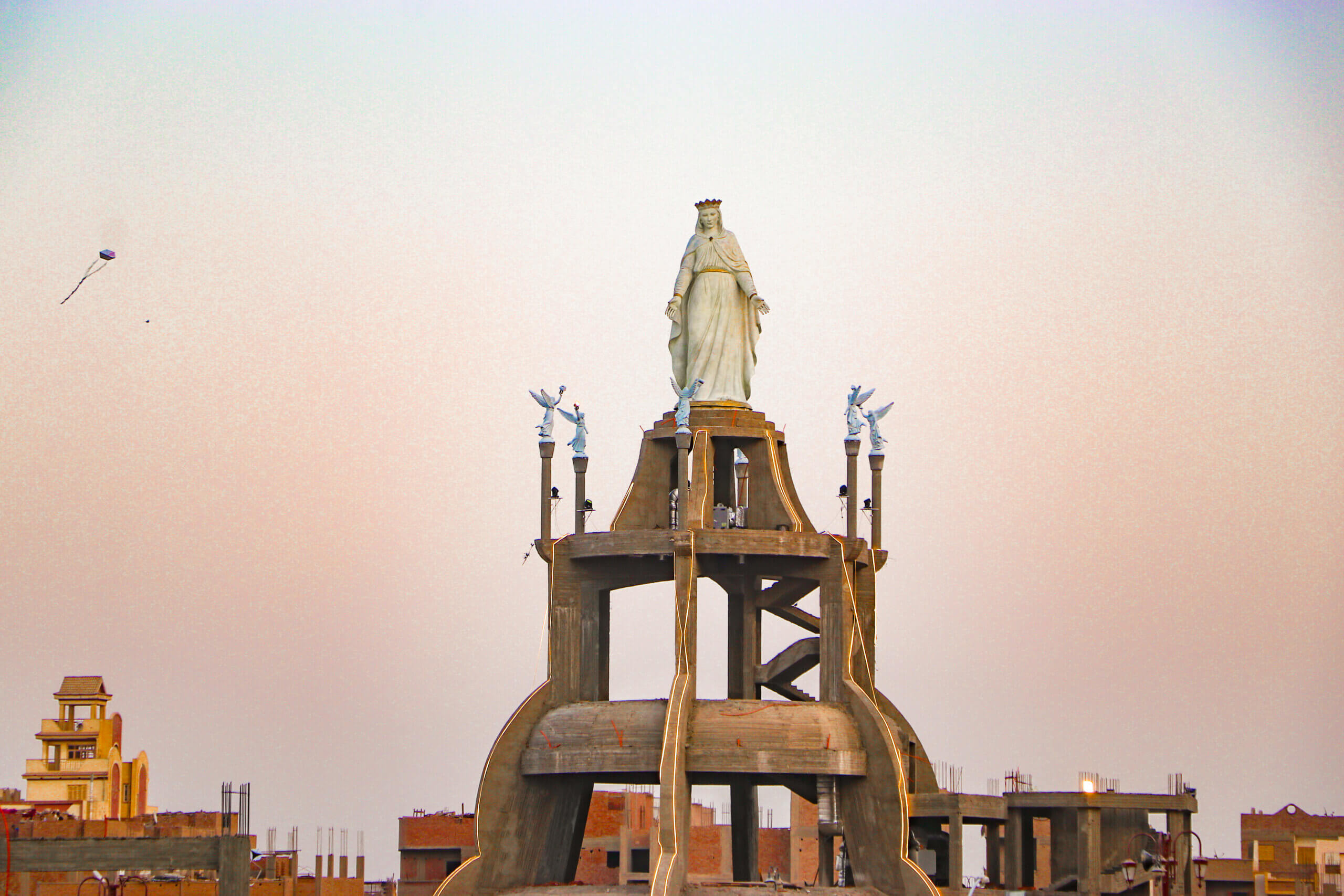For Assumption feast, the volunteers donate household electrical appliances and bedding to the needy families of Baqur and fresh meat to the families of Deir Rifa in Assiout governorate, before taking part in the festivities organised to celebrate the Virgin Mary.
After a six-hour bus journey, we finally arrived in Baqur. The sun is at its hottest, beaming down on the stone houses. The heat is intense, what makes the air very hot, just as the typical heavy Egyptian summer.
My mission is simple: I have to distribute gas cookers, beds, mattresses and pillows to the poorest families in the village. I’m happy to be able to offer a little and modest but essential confort. But a veil of sadness falls over me as I realise that the language barrier prevents me from really communicating with the women to whom I’m offering these donations. Our smiles are sincere, my gestures full of kindness, but there are no words to share more than simple courtesies.
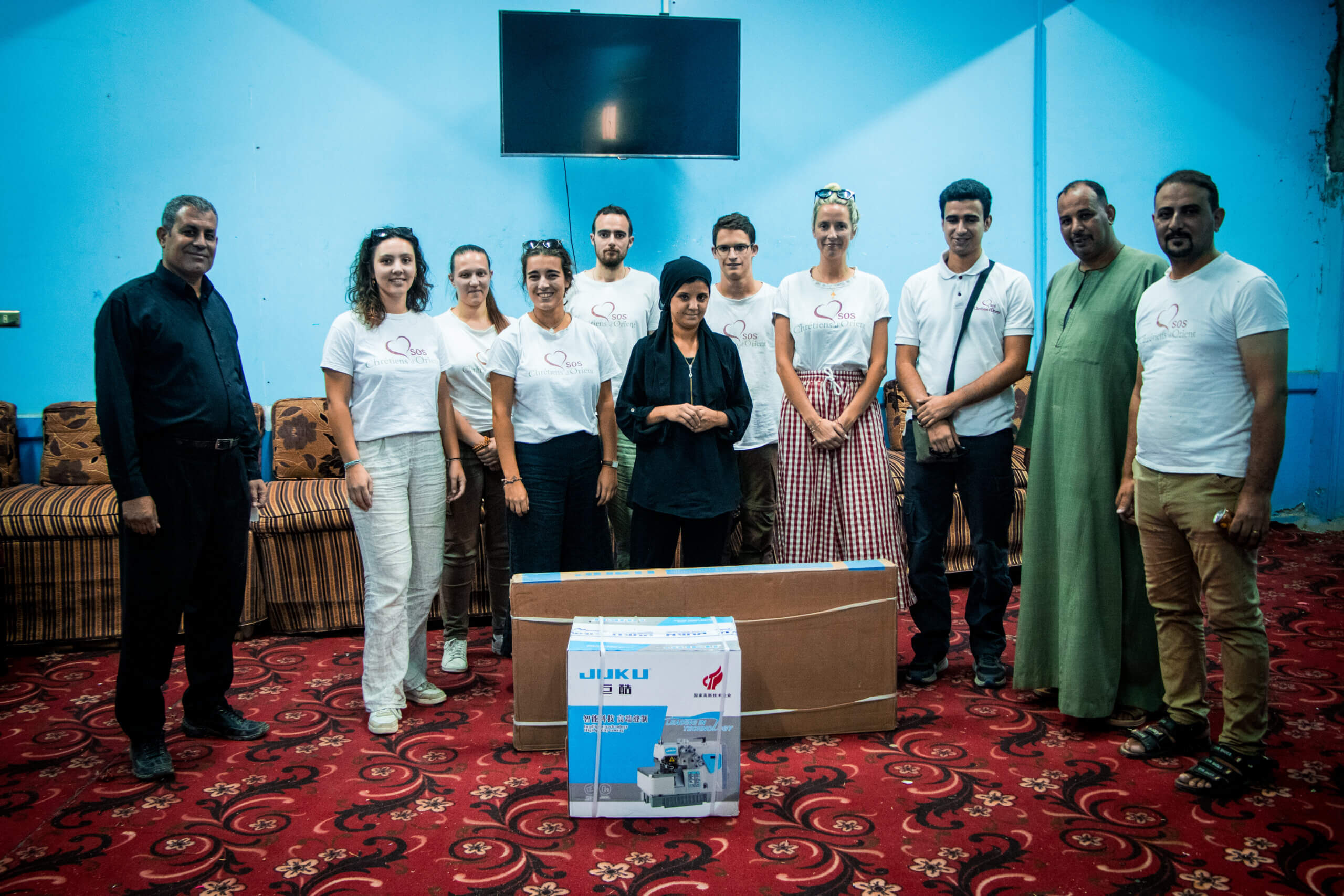
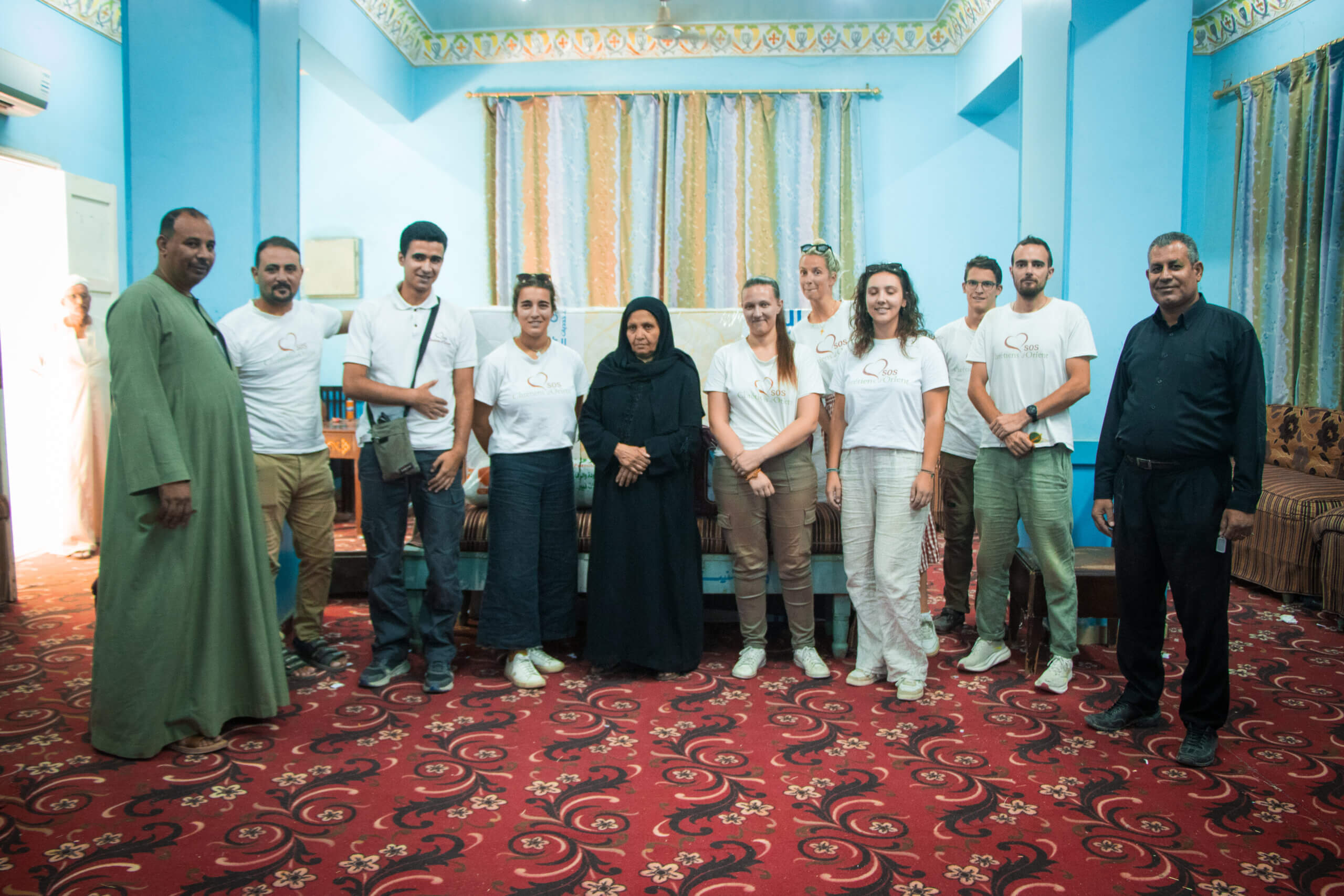
Then, I set off for Deir Rifa, another village where I had to spend the night. The welcome there is warm. One of the village ladies has prepared a simple but delicious lunch for us: Rice with vermicelli, fresh tomatoes and grilled chicken. Every spoon was a taste of the local flavours, a good break after a hard day’s work.
The next day, the village is bustling with activity. A cow is to be sacrificed to feed Deir Rifa famillies. Boys guided it with strong hands despite the angry animal. The butcher then takes out his knife, a tool worn by years of use, and with an experienced hand, he bleeds the cow. The blood runs off, forming a reddish pool on the dusty earth. There is a respectful silence as the carcass is hung up to be cut up. Each piece is carefully weighed and then distributed evenly in sacks that will soon be sent to the homes of the village.
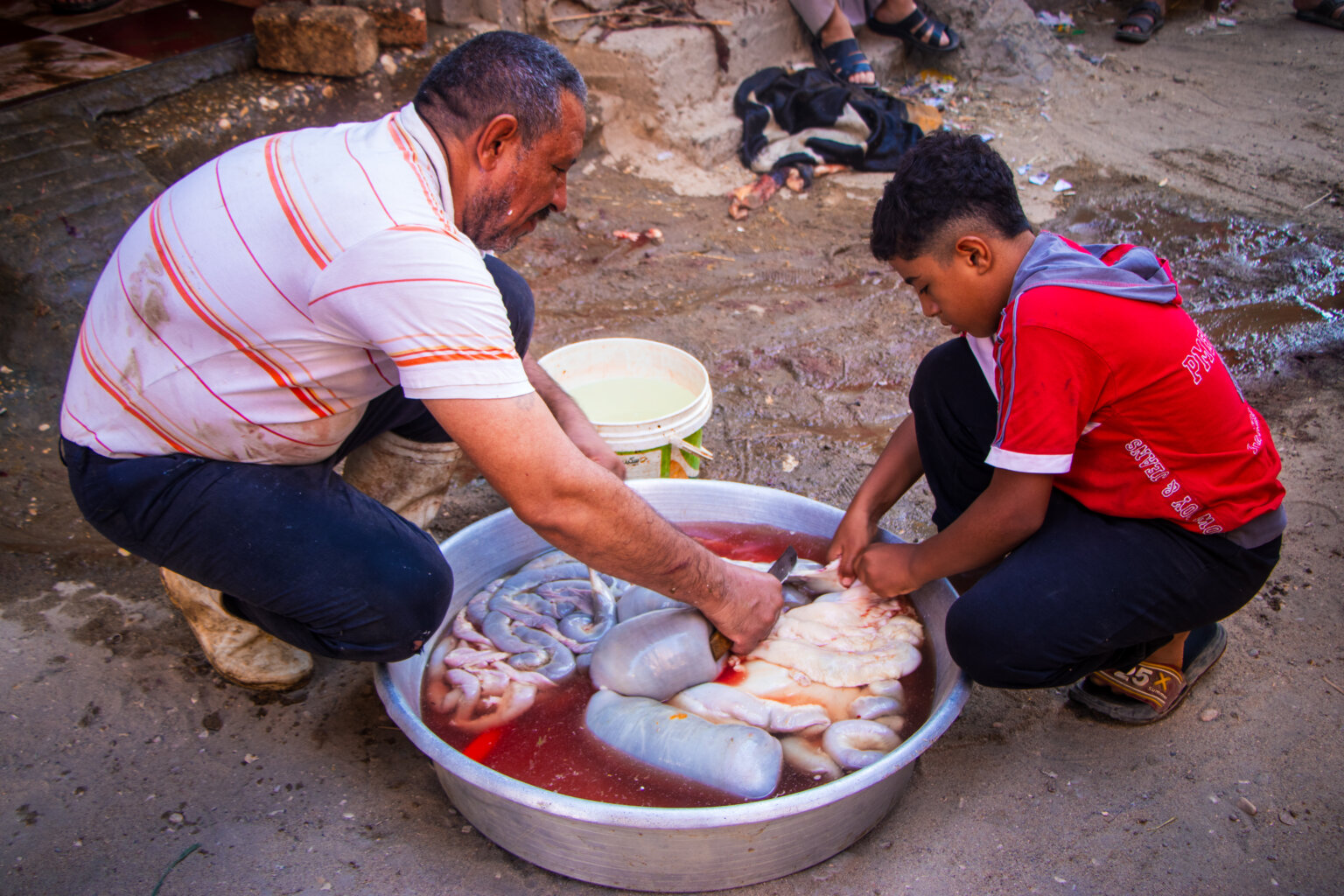
I load donations into the motor tricycles with the other volunteers, and we begin our distribution through the alleyways. I pass children and teenagers, their faces smiling by the excitement of our visit. They were proudly showing me their dogs, chicks and chickens they’ve bought with a few pennies. There are lots of smiles and requests for photos. It’s a simple, beautiful moment, filled with the spontaneous joy of childhood.
But the second round of this food distribution has a more bitter taste. The families I meet are much poorer. The children, wearing almost everything, stand shyly next to their parents who were looking at me with toothless smiles, their eyes at once joyful and imbued with an indelible sadness. This melancholy, anchored deep inside them, will never disappear.
Yet they all welcome the pieces of meat I bring them with gratitude. A glimmer of hope shines in their eyes as a sign of a fleeting happiness.
Back at the starting point, all the donation bags have disappeared. The blood that stained the earth has dried and the cutting table has been washed. Children play nearby, their crystalline laughter filling the air with a new-found lightness. A flock of sheep passes by, guided by two little shepherds with a shuffling gait but clear eyes.
The day is over at the village mayor’s house, tasting typical local dishes and sharing a last moment of conviviality before setting off again.
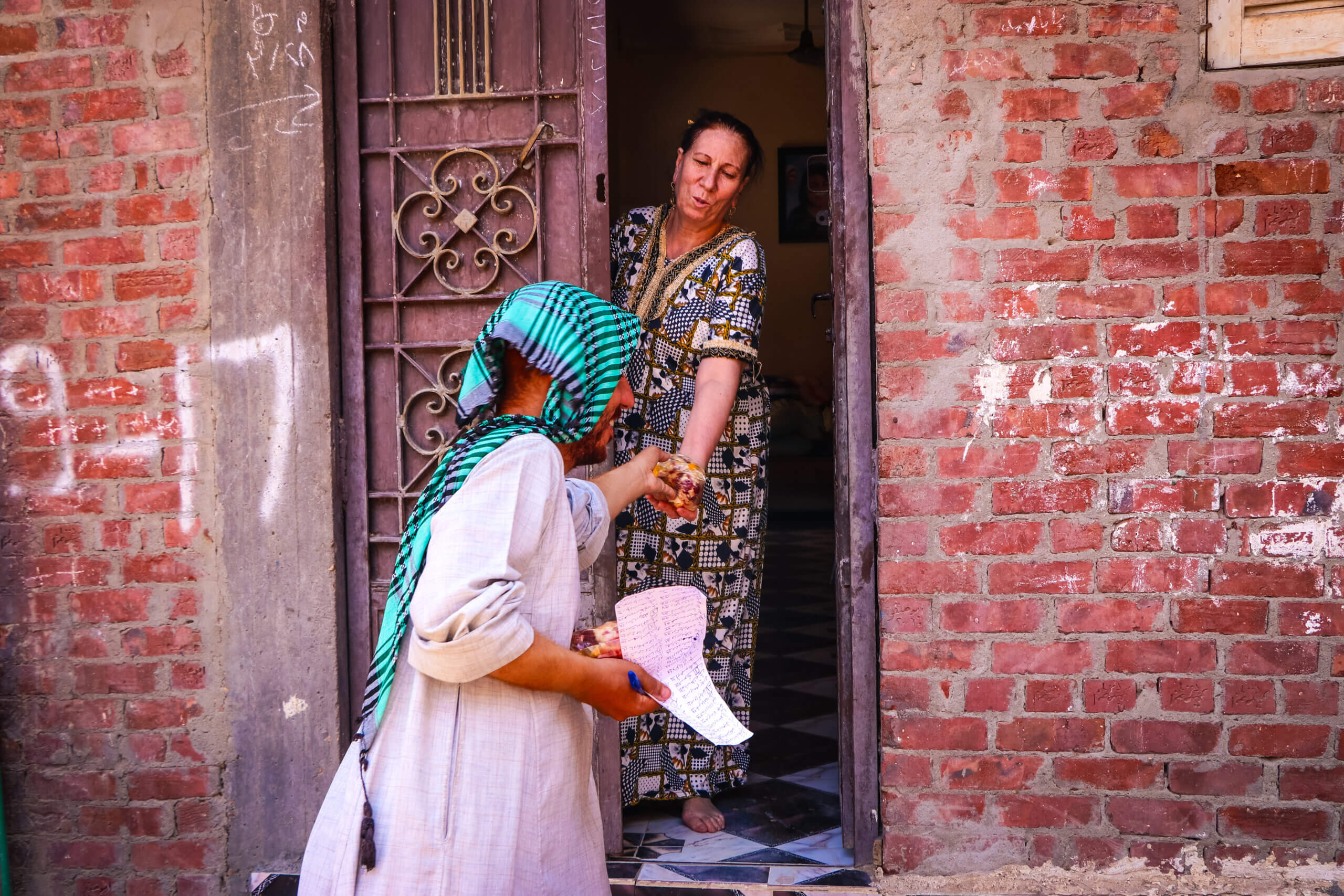
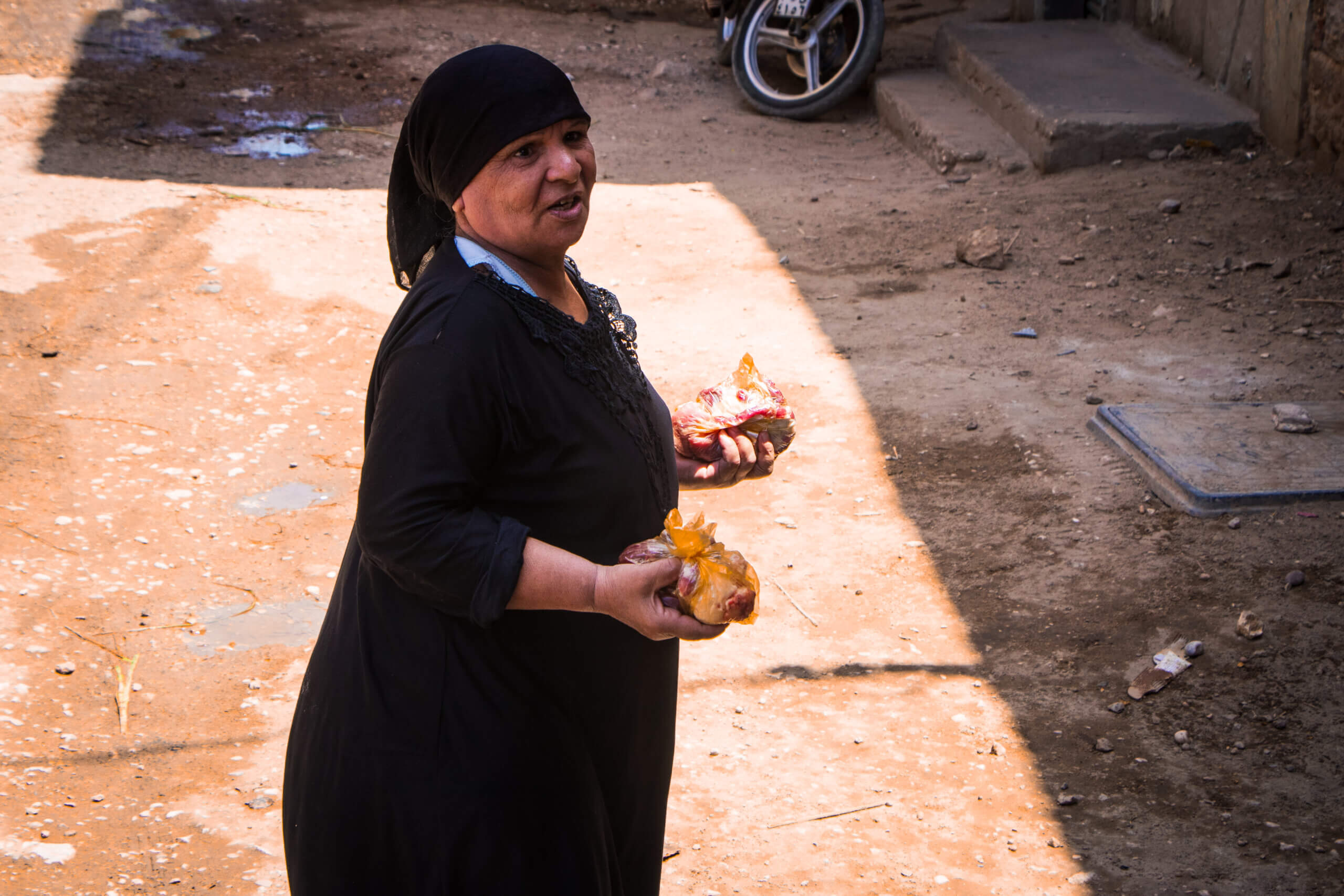
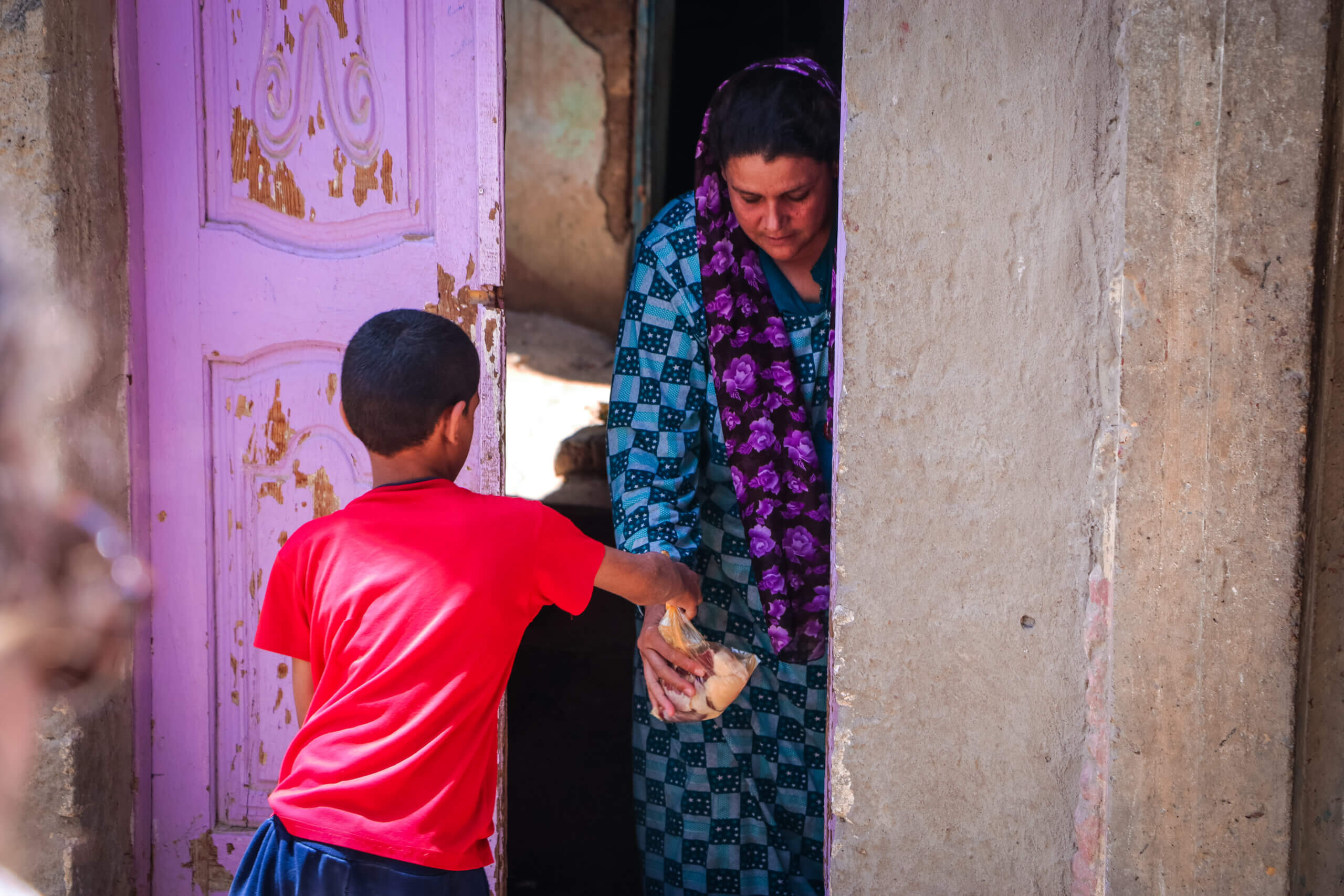
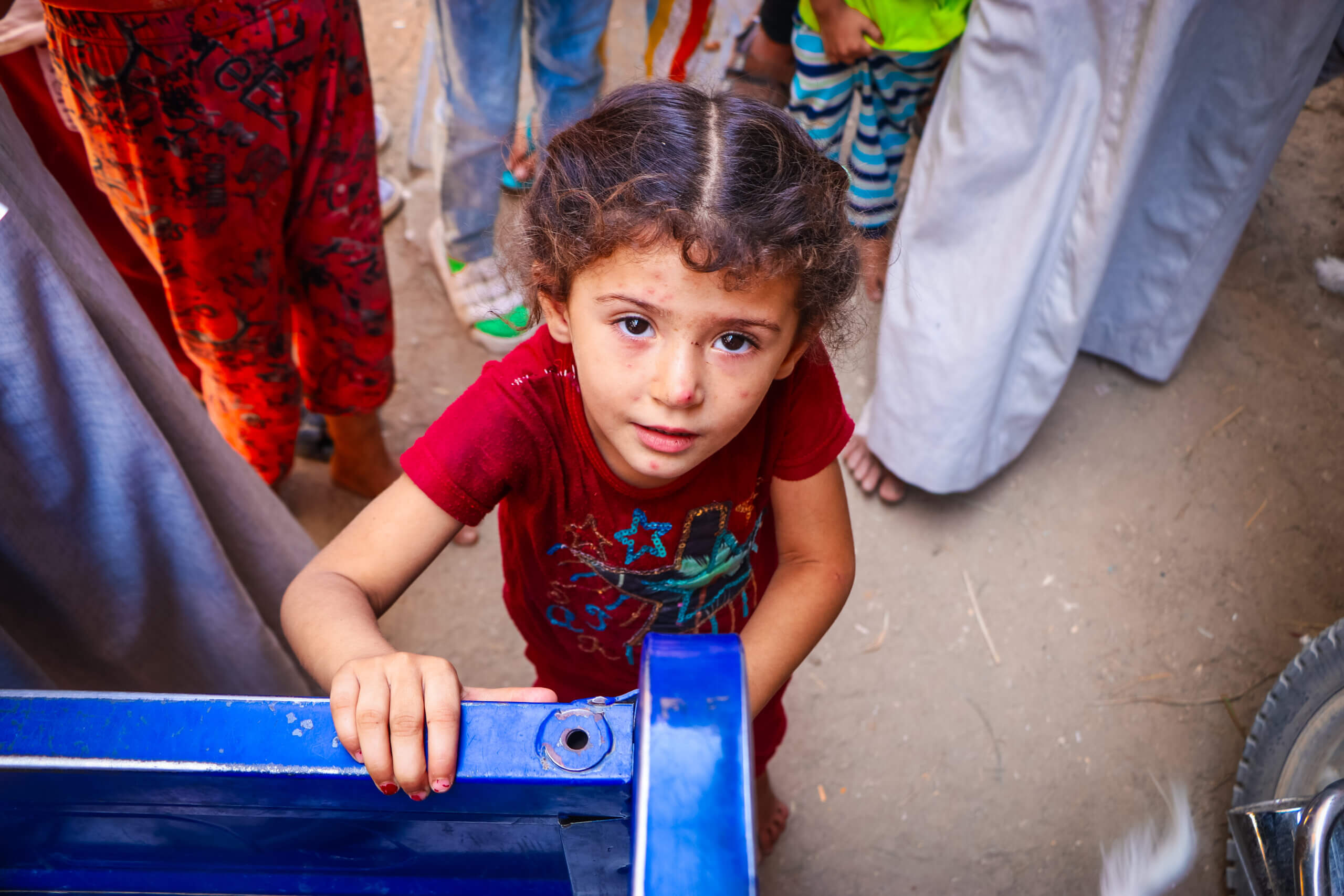
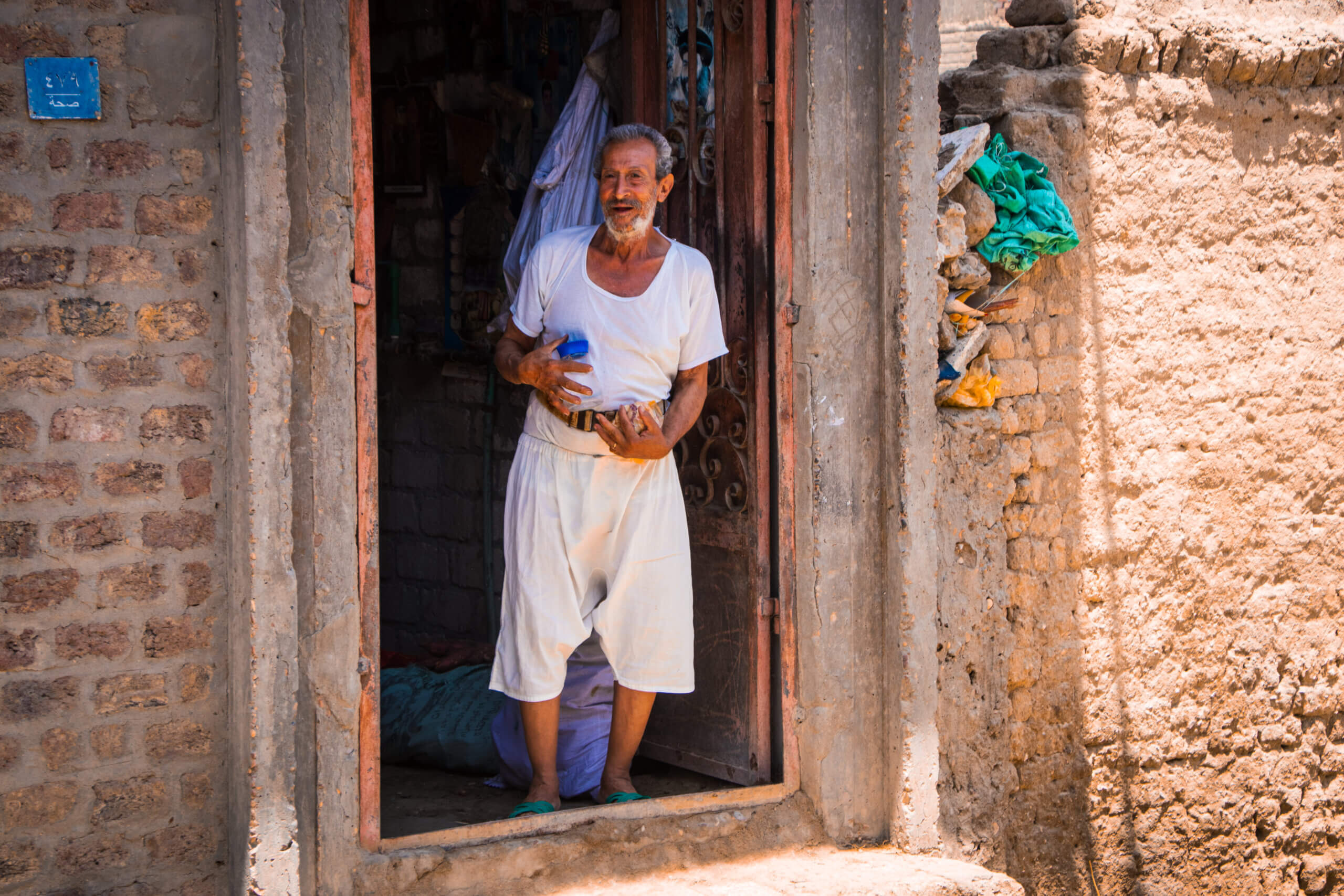
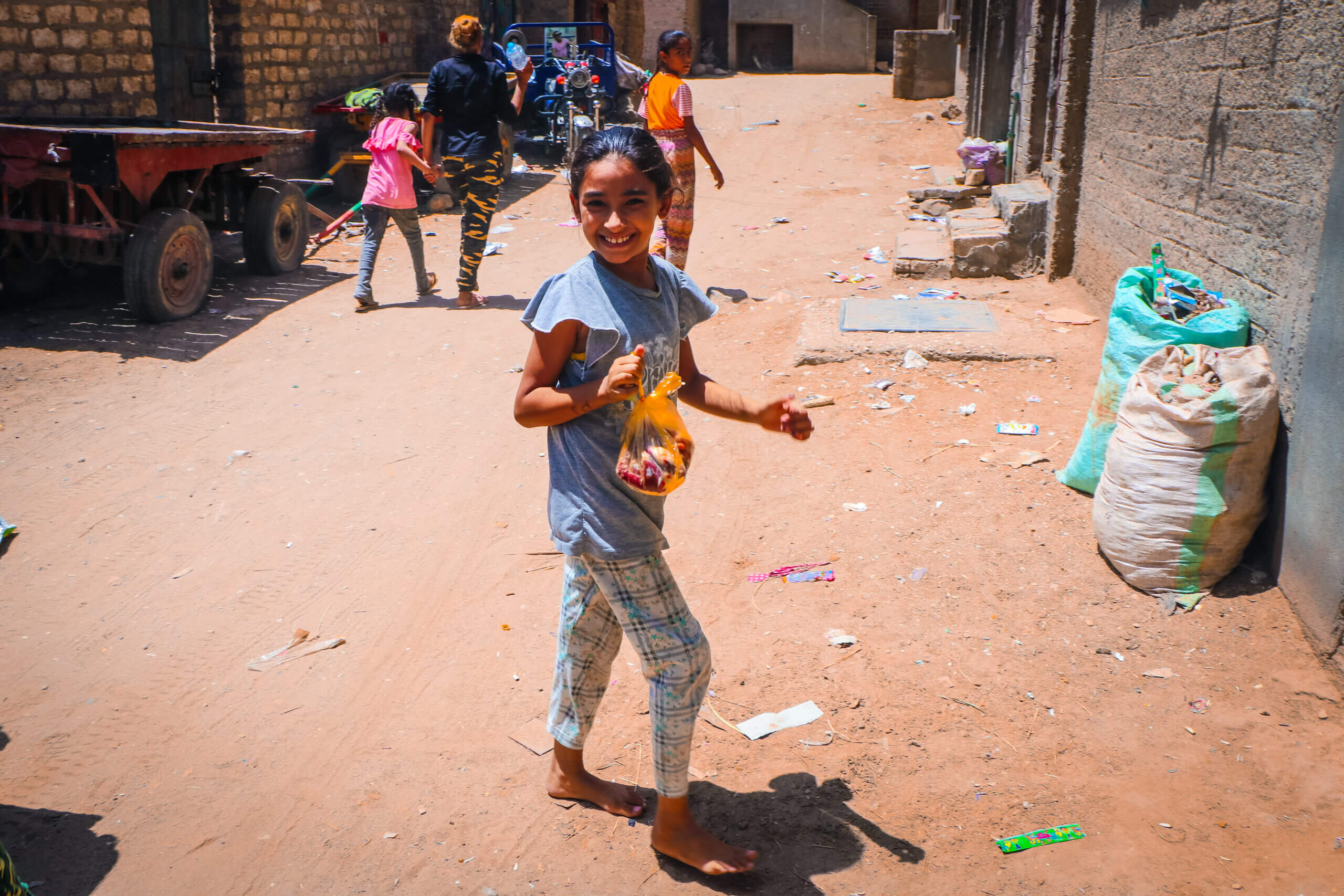
I made my way through the crowds to get to the church. The density of pilgrims crowding around us makes our progress slow and laborious. The Egyptians from Upper Egypt curious eyes landed on us. They rarely see Europeans, much less French people. powerless, we became the centre of attention.
Finally, I arrived in front of the church, a modest but mysterious building carved directly in the rock. Inside, the air is hot and humid. The floor is slippery and the walls are peeling off. Women moving hand fans and children doze on the benches. The crowd murmur grows louder as I discover the grotto where, according to history, the Holy Family took refuge during their flight to Egypt. The place is charged with a special aura, a stone sanctuary that seems timeless. It’s a solemn moment, a spiritual pause in the midst of the hustle and bustle, but the crowd, animated by a palpable fervour, urges me on.
One of the orgnizators noticed my interest and, with respected authority, ordered the crowd to move back. He allowed me to approach the grotto to take a photo. I’m overcome with embarrassment at this preferential treatment. I’m aware of the privilege I’ve been granted here, in this sacred place. Despite this, I move quickly forward, fully aware of the moment weight, and I hasten to capture a few shots, hoping that they will capture the majesty of this place.
Once the photos were taken, I rejoined the group, trying to blend in again. The wait begins, a pause before the rest of the events, marked by the bittersweet tension of an extraordinary moment.
A procession begins in an atmosphere charged with fervour. At the head of the procession, the bishop advances slowly, surrounded by sturdy servants who protect him from the incessant movement of the crowd. Each member of the faithful seems driven by a single desire: To touch his tunic, as if to capture a fragment of blessing in this sacred moment. Hands are outstretched, bodies are pressed together, and a human tide moves in chaotic harmony around him.
I stand at a distance, surrounded by servants who help me move forward despite the density of the crowd. The Arabic chants rise up, filling the air with haunting melodies that resonate with a particular intensity in this sacred place. The voices unite, creating a wave of sound that sweeps away everything in its path, immersing us fully in the moment.
Time passes, and we have to leave. Against my will, I got off from the procession, leaving behind me this vibrant scene of devotion. I returnd to the bus, aware that this marks the end of my stay in Upper Egypt.
As the bus pulls away, I turned my eyes one last time towards the village, taking with me the memories of these intense days. I’m about to head back to Cairo, where I’ll resume my work with the children. But a part of me remains anchored here, among these faces, these songs, and this deep faith that has marked my time in Upper Egypt’.
